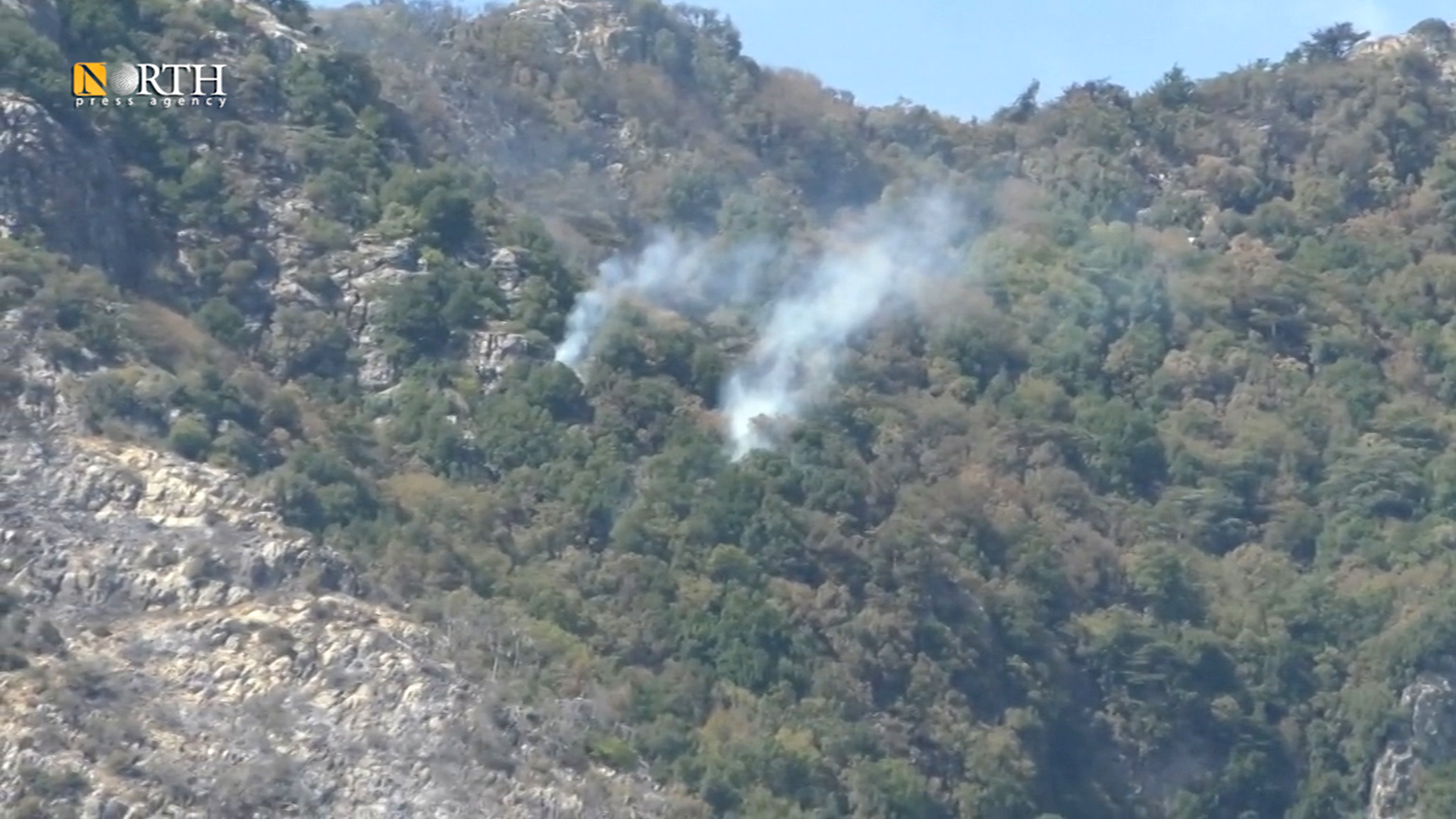LATAKIA, Syria (North Press) – The Syrian government promised to compensate farmers following the visit of Syrian President Bashar Assad to areas affected by the fires in the coast.
According to investigative committees, the affected areas amount to 11,448 hectares, which is equivalent to 5.9% of the total agricultural and forest areas in the governorates of Homs, Tartus, and Latakia.
‘We only get crumbs’
Ghaida Abbas, a housewife from the village of Fakhoura in the countryside of Qardaha, southeast of Latakia, said that no one has received compensation for the fires of past years, so they have no hopes for government promises of compensation for the most recent fires.
Abbas accused government committees and officials of collecting donations and begging at the expense of those affected, and seizing the bulk of it for their personal accounts. “Everything ends in their pockets and we only get crumbs,” she explained.
“Look at the aid, how it is offered for sale on the city sidewalks, from rice to chargers, tents, oil, sugar, bulgur, fans, and blankets,” she said.
During his visit to Latakia countryside, Syrian President Bashar Assad described the fires as a national disaster, and made promises that the government would bear the brunt of the support and compensation.
Useless promises
Latifa Malak, a housewife from the Qamin village in Fakhoura, said that there is nothing to compensate their losses.
Malak laments the loss of her trees, and doubts the government promises to provide seedlings for planting. “Tomorrow they will give us olive and lemon seedlings to plant, and we will age while we wait for their fruits and production.”
Affected farmers are wondering about the sources of livelihood during the years that it takes for the seedlings to bloom, and about the assessments that they say will be made according to the bribes that will be given to government committees.
The Syrian government recently approved compensation for those affected by the fires in Latakia, Tartus, Homs, and the Ghab region.
The Syrian government’s decision to pay compensation came five days after the Syrian President issued a decision to spend 10,000,000 Syrian pounds (SYP) for each affected village.
The Chamber of Commerce and Industry of Damascus and its countryside launched an initiative entitled “Cold and Peace for Syria” to support those affected by fires that broke out in the country, with a budget of about 200,000,000 SYP.
Regarding the initiative and compensation, Abu Habib Ghanam, a farmer from the Ras al-Basit area north of Latakia, said that the sums allocated do not cover any of the costs.
Economists warn of farmers deserting their lands and searching for other sources of livelihood in light of the government’s inability to stop the fires, and the absence of specialized teams and government plans to confront these disasters.
Regarding the government’s plans to provide loans to farmers affected by the fires, Suleiman Abu Marouf, a farmer from the Latakia countryside, said that they are still suffering from the consequences of the old government loans.
He added, “They promise to give us loans while we are not done with the old ones yet. Our crops are sold at low prices and sometimes we do not harvest them in order to save the effort, as the prices do not cover the costs of production.”
Irreplaceable trees
Barakat Salim, an agricultural engineer from Latakia, wondered how to compensate the affected farmers for trees, most of which are more than ten years old.
“Today, any tree needs at least five years to start producing, and there are forest species that are within the farmers’ properties and need more than that,” he said.
Hamid Ghazal, a lecturer at the Faculty of Agriculture at Ba’ath University in Homs, had previously told North Press that the compensation would not give the required result quickly.
He pointed out that the burnt trees will need agricultural generations to return to their previous productivity, especially olives. “As for the forests, they will need twice as much time.”

